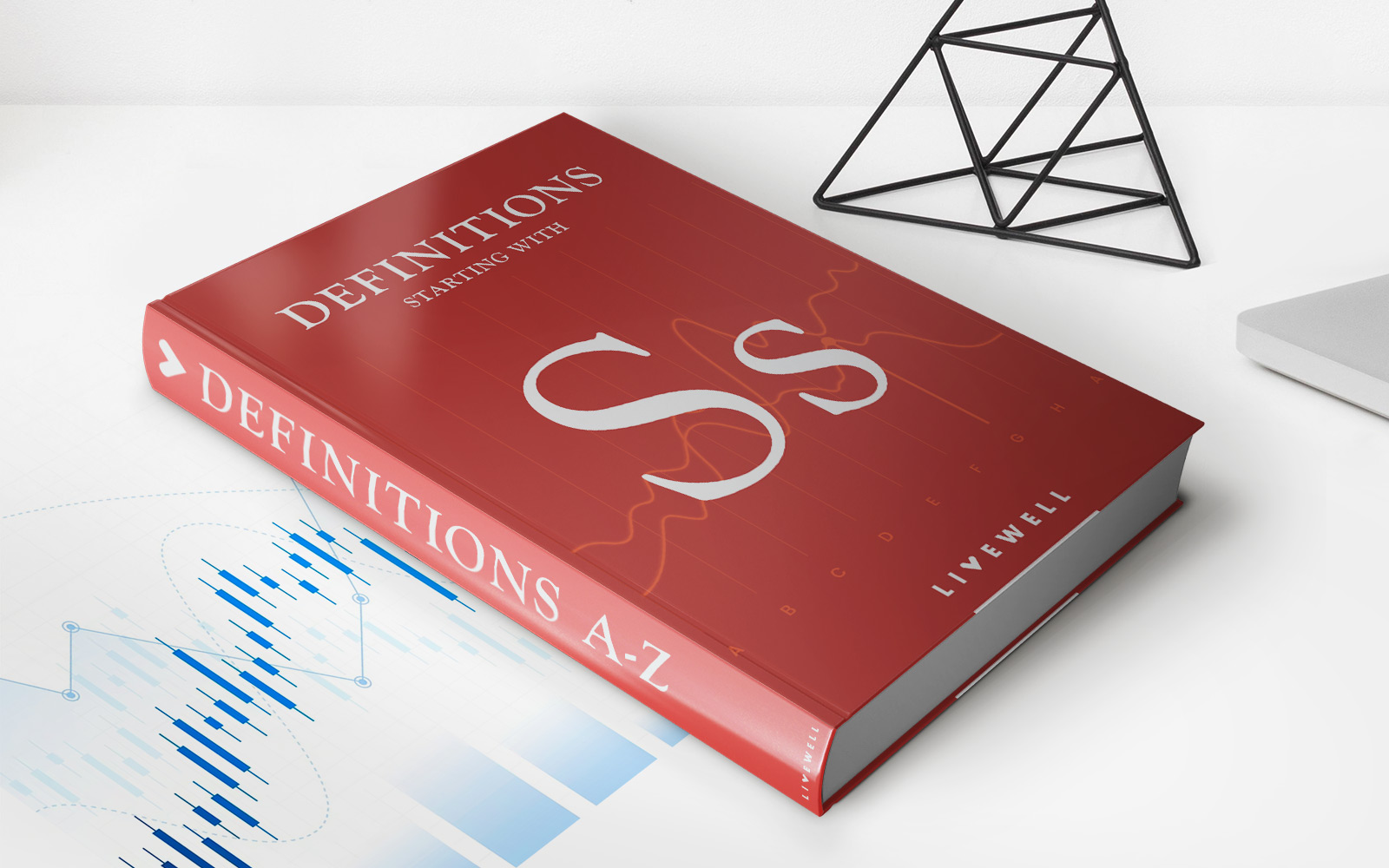

Finance
How To Cite IRS Publications
Published: November 1, 2023
Learn how to properly cite IRS publications in your finance research and stay in compliance with IRS guidelines. Discover step-by-step instructions and examples to ensure accurate referencing.
(Many of the links in this article redirect to a specific reviewed product. Your purchase of these products through affiliate links helps to generate commission for LiveWell, at no extra cost. Learn more)
Table of Contents
- Introduction
- Why Cite IRS Publications?
- Understanding IRS Publication Citations
- Elements of an IRS Publication Citation
- Format for Citing IRS Publications in APA Style
- Format for Citing IRS Publications in MLA Style
- Format for Citing IRS Publications in Chicago Style
- Examples of Citing IRS Publications in Different Styles
- Tips for Citing IRS Publications Accurately
- Conclusion
Introduction
When conducting research or writing about finance-related topics, it is essential to provide accurate and credible sources. One valuable resource is the Internal Revenue Service (IRS) publications, which provide guidance and information on various tax-related matters. Citing IRS publications not only adds credibility to your work, but it also allows readers to access the original source for more in-depth information.
In this article, we will explore the importance of citing IRS publications and provide guidelines on how to do so in different citation styles, such as APA, MLA, and Chicago. By following these guidelines, you can ensure that your citations comply with the established standards and enhance the quality of your research.
Citing IRS publications is particularly important in the field of finance where accuracy and legitimacy are crucial. These publications contain valuable information, interpretations of tax laws, and guidelines on various tax-related topics. By citing these publications, you acknowledge the authority and expertise of the IRS, reinforcing the credibility of your own work.
Additionally, citing IRS publications allows your readers to locate the original source easily. This is especially beneficial for professionals, students, and individuals who may want to delve deeper into the topic or verify the accuracy of the information provided in your article. By providing accurate and accessible citations, you contribute to the knowledge and understanding of tax matters in the finance community.
Understanding how to properly format and cite IRS publications is essential. Different citation styles have specific requirements for citing these publications, such as the order of elements, punctuation, and capitalization. In the following sections, we will discuss the key elements that make up an IRS publication citation and provide examples of how to cite IRS publications in APA, MLA, and Chicago styles.
By learning and implementing the correct citation format, you can ensure consistency and accuracy in your research, making your work more credible and reliable. Let’s delve into the details of how to cite IRS publications in various citation styles.
Why Cite IRS Publications?
Citing IRS publications serves multiple purposes and brings several benefits to your writing. Here are the main reasons why it is crucial to cite IRS publications in your work:
- Accuracy and Credibility: As a trusted authority on tax matters, the IRS provides accurate and up-to-date information through their publications. By citing these publications, you demonstrate that you have used reliable sources and enhance the credibility of your work.
- Verification: Citing IRS publications allows readers to verify the information you have presented. They can refer to the original source and ensure that the information is accurate, strengthening the trustworthiness of your research.
- Legal Compliance: When writing about tax-related topics, it is crucial to ensure legality and compliance with tax laws. IRS publications provide interpretations of tax laws and guidelines that help you stay within the boundaries of the law. By citing these publications, you show that your work is supported by authoritative sources.
- Accessibility: IRS publications are available to the public, either through their website or in print. By providing citations, you enable readers to access the original source and explore the topic further. This promotes transparency and encourages further research.
- Professionalism: Citing IRS publications demonstrates your professionalism and commitment to scholarly research. It shows that you have taken the time to find and utilize reliable sources, adding value to your work and distinguishing it from unsubstantiated claims or opinions.
Overall, citing IRS publications not only ensures accuracy and credibility in your research but also provides a way for readers to verify and investigate the information provided. It demonstrates your adherence to legal compliance and professionalism in your writing. By incorporating these citations, you contribute to the scholarly discourse in the field of finance and help advance the understanding of tax-related matters.
Understanding IRS Publication Citations
When citing IRS publications, it is essential to understand the elements that make up a citation. Knowing what to include and how to format the citation will ensure accuracy and compliance with the chosen citation style. Here are the key elements typically included in an IRS publication citation:
- Author(s): IRS publications are generally authored by the Internal Revenue Service, so the organization itself is considered the author. In some cases, specific individuals or departments within the IRS may be credited as authors.
- Title: The title of the IRS publication should be given in the citation. It is usually descriptive and provides an indication of the topic or content covered in the publication.
- Publication Date: The publication date is important for indicating the currency of the information. IRS publications are regularly updated, so it is crucial to include the specific date or at least the year of publication.
- Publication Number: Each IRS publication is assigned a unique publication number, such as a tax form or instruction number. This identifier helps readers locate the specific publication.
- Publication Series: IRS publications are divided into different series, such as forms, instructions, bulletins, or guides. The series provides additional information about the type and purpose of the publication.
- Source: It is essential to provide information about where the publication can be accessed or obtained. This can include the specific website, URL, or print publication details.
Understanding these elements allows you to construct a comprehensive and accurate citation for an IRS publication. It is important to note that the specific format and order of these elements may vary depending on the citation style you are using, such as APA, MLA, or Chicago.
Each citation style has its own guidelines for how IRS publications should be formatted within a reference list or bibliography. These guidelines specify details such as the use of italics, capitalization, punctuation, and any additional information required. It is crucial to consult the appropriate style guide or refer to reputable online resources to ensure your citations are formatted correctly.
By understanding the components of an IRS publication citation and the specific guidelines for your chosen citation style, you can accurately and effectively incorporate IRS publications into your research. This ensures that you give credit to the original source and provide readers with the necessary information to locate and verify the information you have used.
Elements of an IRS Publication Citation
When citing an IRS publication, it is important to include specific elements in your citation to provide accurate and complete information for your readers. Here are the key elements that make up an IRS publication citation:
- Author(s): The author of an IRS publication is typically the Internal Revenue Service (IRS). In some cases, specific individuals or departments within the IRS may be credited as authors.
- Title: Include the title of the IRS publication in your citation. The title should be descriptive and reflect the content or purpose of the publication.
- Publication number: Each IRS publication is assigned a unique publication number, such as a tax form or instruction number. Including the publication number helps readers easily locate the specific publication you are referencing.
- Publication date: Provide the publication date of the IRS publication. This helps establish the currency and relevance of the information you are citing. Include the specific day, month, and year if available.
- Source: Indicate the source of the IRS publication, such as the official IRS website or a print publication. If citing an online source, include the URL or DOI to direct readers to the publication.
These elements collectively provide the necessary information for your readers to locate and access the IRS publication you are citing. However, it is important to note that the specific formatting and order of these elements may vary depending on the citation style you are using, such as APA, MLA, or Chicago.
For example, in APA style, the citation format for an IRS publication follows the general pattern of (Author, Publication Year). In MLA style, the citation format includes the author, title, publication number, and publication date. In Chicago style, the citation format includes the author, title, publication number, and source information.
Consulting the specific guidelines for your chosen citation style is crucial to ensure the accurate formatting of your IRS publication citation. Pay attention to details such as capitalization, punctuation, italics, and the order of elements to create a precise and consistent citation.
By including these key elements in your IRS publication citation and adhering to the guidelines of your chosen citation style, you provide your readers with the necessary details to locate and evaluate the source of the information you have referenced.
Format for Citing IRS Publications in APA Style
When citing an IRS publication in APA style, follow the guidelines below to ensure accurate and consistent formatting:
In-text Citation:
When directly quoting or paraphrasing information from an IRS publication in the body of your text, include the author and publication year in parentheses. If no individual author is specified, use the name “Internal Revenue Service” as the author.
- (Internal Revenue Service, Year)
- (Internal Revenue Service, Year, para. Section Number)
Reference List:
In the reference list, provide a full citation for the IRS publication you are citing. The format for an IRS publication citation in APA style is:
Author. (Year). Title of the Publication (Publication Number). Retrieved from URL
- Example with an individual author:
- Example without an individual author:
Internal Revenue Service. (2022). Tax Guide for Small Business (Publication 334). Retrieved from https://www.irs.gov/publications/p334
Internal Revenue Service. (2019). Publication 17: Your Federal Income Tax. Retrieved from https://www.irs.gov/publications/p17
Remember to capitalize the first letter of the title and subtitle, italicize the title of the publication, and use sentence case for other elements.
Note: If the publication does not have a specific publication date, APA recommends using the date of the most recent update or revision.
By following the APA style format for citing IRS publications, you can ensure consistency and accuracy in your reference list. Always verify the details and consult the latest edition of the APA Publication Manual for any updates or specific guidelines.
Format for Citing IRS Publications in MLA Style
When citing an IRS publication in MLA style, adhere to the following guidelines to ensure accurate and consistent formatting:
In-text Citation:
When referencing information from an IRS publication in your text, include the author’s name and the page number in parentheses. If no individual author is specified, use “Internal Revenue Service” as the author.
- (Author’s Last Name Page Number)
- (Internal Revenue Service Page Number)
Works Cited Entry:
In the Works Cited section, provide a full citation for the IRS publication you are citing. The format for an IRS publication citation in MLA style is as follows:
Author. Title of the Publication. Publication Number, Publisher, Year. URL
- Example with an individual author:
- Example without an individual author:
Internal Revenue Service. Tax Guide for Small Business. Publication 334, U.S. Government Publishing Office, 2022. https://www.irs.gov/publications/p334
Internal Revenue Service. Publication 17: Your Federal Income Tax. U.S. Government Publishing Office, 2019. https://www.irs.gov/publications/p17
Italicize the title of the publication, use sentence case for the title and subtitle, and include the publication number, publisher, and year. If the publication does not have a specific publication date, use the date of the most recent update or revision.
Consult the MLA Handbook or refer to reputable online resources for specific guidelines and any updates to citation rules.
By following the MLA style format for citing IRS publications, you can ensure that your citations are accurate and consistent. Providing complete and properly formatted citations enhances the credibility and professionalism of your research.
Format for Citing IRS Publications in Chicago Style
When citing an IRS publication in Chicago style, follow the guidelines below to ensure accurate and consistent formatting:
Footnote/Endnote Citation:
In a footnote or endnote, include the author’s name (if available), the title of the publication (in italics or quotation marks), the publication number (if applicable), the publication year, and the specific page number or section being referenced.
Format:
Author’s First Name Last Name, Title of the Publication (Publication Number, Year), page number or section number.
Or if no individual author is specified:
Title of the Publication (Publication Number, Year), page number or section number.
Bibliography Entry:
In the bibliography, provide a full citation for the IRS publication. The format for an IRS publication citation in Chicago style is as follows:
Last Name, First Name. Title of the Publication. Publication Number. Year. URL.
- Example with an individual author:
- Example without an individual author:
Internal Revenue Service. Tax Guide for Small Business. Publication 334. 2022. https://www.irs.gov/publications/p334.
Internal Revenue Service. Publication 17: Your Federal Income Tax. Publication 17. 2019. https://www.irs.gov/publications/p17.
Make sure to italicize the title of the publication and include the publication number, if available.
Consult the Chicago Manual of Style or reputable online resources for any updates or specific guidelines regarding citation formatting.
By following the Chicago style format for citing IRS publications, you can ensure consistency and accuracy in your footnotes/endnotes and bibliography. Properly formatted citations enhance the credibility and validity of your research.
Examples of Citing IRS Publications in Different Styles
Here are examples of how to cite IRS publications in different citation styles:
APA Style:
- In-text citation:
- Reference list:
(Internal Revenue Service, 2022)
Internal Revenue Service. (2022). Tax Guide for Small Business (Publication 334). Retrieved from https://www.irs.gov/publications/p334
MLA Style:
- In-text citation:
- Works Cited entry:
(Internal Revenue Service)
Internal Revenue Service. Tax Guide for Small Business. Publication 334. U.S. Government Publishing Office, 2022. https://www.irs.gov/publications/p334
Chicago Style:
- Footnote/Endnote citation:
- Bibliography entry:
Internal Revenue Service, Tax Guide for Small Business (Publication 334, 2022), page number or section number.
Internal Revenue Service. Tax Guide for Small Business. Publication 334. 2022. https://www.irs.gov/publications/p334.
These examples demonstrate how to format citations for IRS publications in APA, MLA, and Chicago styles. Remember to adapt the format according to the specific guidelines of the citation style you are using. Pay attention to details such as italicization, capitalization, punctuation, and the order of elements.
Using the appropriate citation style for your field of study ensures consistency, accuracy, and compliance with scholarly standards. It is important to consult the appropriate style guide or refer to reputable online resources for citation formatting guidelines and any updates to citation rules.
By following the examples provided, you can effectively cite IRS publications in various citation styles, lending credibility and reliability to your research.
Tips for Citing IRS Publications Accurately
When citing IRS publications, it is crucial to ensure the accuracy and consistency of your citations. Here are some tips to help you cite IRS publications accurately:
- Verify the author: The author of IRS publications is usually the Internal Revenue Service. However, in some cases, specific individuals or departments within the IRS may be credited. Double-check the author’s name to ensure it is correctly cited.
- Include the publication number: Each IRS publication is assigned a unique publication number, such as a tax form or instruction number. Make sure to include the publication number in your citation as it aids in identifying the specific publication you are referencing.
- Include the publication date: Provide the publication date of the IRS publication. This helps establish the currency and relevance of the information. If the publication does not have a specific publication date, use the date of the most recent update or revision.
- Use the correct citation style: APA, MLA, and Chicago are common citation styles used in academic writing. Familiarize yourself with the specific guidelines for the style you are using. Pay attention to capitalization, punctuation, and the order of elements within the citation.
- Consult reputable sources: Refer to trusted sources such as citation style guides or the official websites of citation style organizations to ensure accurate formatting. These sources provide detailed guidelines and examples specific to each citation style.
- Keep track of your sources: Maintain a record of the IRS publications you cite, including their titles, publication numbers, and publication dates. This will help you create accurate citations and provide the necessary information for readers to locate the publications.
- Double-check URLs: If citing online IRS publications, ensure that the provided URLs are correct and functional. Check that the URLs lead directly to the specific publication and not just the general website.
By following these tips, you can cite IRS publications accurately, ensuring that your citations are consistent, reliable, and compliant with the chosen citation style. Accurate citations contribute to the credibility of your research and allow readers to easily locate and verify the information from IRS publications.
Conclusion
Citing IRS publications is a crucial aspect of writing about finance-related topics. It adds credibility to your work, allows for easy verification, ensures legal compliance, and provides accessibility to readers. Understanding the elements of an IRS publication citation and following the formatting guidelines of different citation styles, such as APA, MLA, and Chicago, is essential for accurate and consistent citations.
By citing IRS publications, you acknowledge the authority and expertise of the Internal Revenue Service, reinforcing the credibility of your own work in the field of finance. Providing accurate citations also allows readers to access the original source for further exploration and verification of the information you have presented.
Remember to include the necessary elements in your citations, such as the author (usually the IRS), title, publication number, publication date, and source information. Ensure that your citations conform to the specific guidelines of the citation style you are using.
By adhering to these guidelines, you enhance the professionalism and accuracy of your research, contributing to the scholarly discourse in the field of finance. Accurate citations promote transparency and enable others to build upon your work, advancing the collective understanding of tax-related matters.
Always consult reliable style guides or reputable online resources for up-to-date citation guidelines. Keeping track of your sources and verifying URLs are also important practices to ensure the accuracy and validity of your citations.
In conclusion, citing IRS publications is an essential practice in writing about finance. It not only adds credibility to your work but also facilitates further exploration and verification of the information you present. By accurately citing IRS publications using the appropriate citation style guidelines, you contribute to the professionalism and integrity of your research, establishing yourself as a credible voice in the field of finance.














